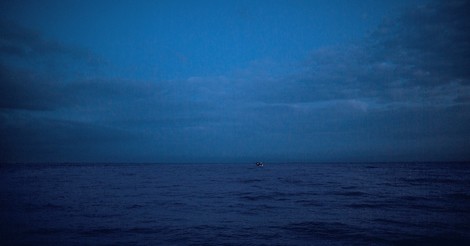Your podcast discovery platform
Curious minds select the most fascinating podcasts from around the world. Discover hand-piqd audio recommendations on your favorite topics.

piqer for: piqd Boom and bust Climate and Environment Global finds Globalization and politics Health and Sanity Technology and society Doing Good Deep Dives
Malia Politzer is the executive editor of piqd.com, and an award-winning long-form journalist based out of Spain. She specializes in reporting on migration, international development, human rights issues and investigative reporting.
Originally from California, she's lived in China, Spain, Mexico and India, and reported from various countries in Africa, Europe and the Middle East. Her primary beats relate to immigration, economics and international development. She has published articles in Huffington Post Highline, The Economist, The Wall Street Journal, Vogue India, Mint, Far Eastern Economic Review, Foreign Policy, Reason Magazine, and the Phoenix New Times. She is also a regular contributor to Devex.
Her Huffington Post Highline series, "The 21st Century Gold Rush" won awards from the National Association of Magazine Editors, Overseas Press Club, and American Society of Newspaper Editors. She's also won multiple awards for feature writing in India and the United States.
Her reporting has been supported by the Pulitzer Center on Crisis Reporting, The Institute For Current World Affairs, and the Global Migration Grant.
Degrees include a BA from Hampshire College and MS from Columbia University Graduate School of Journalism, where was a Stabile Fellow at the Center for Investigative Journalism.
The US Coast Guard's "Floating Guantánamos"
In this chilling New York Times Magazine long-read, journalist Seth Freed Wessler shows how the United States government is expanding the power to arrest and detain (without reading the detainee their Miranda rights or giving them access to a lawyer) far beyond their international borders: As a part of the "War on Drugs" the US Coast Guard has been detaining people they believe to be small-time smugglers allegedly destined for the US while en-route in international waters. Once detained, the alleged smugglers are chained to a US barge, sometimes for months at a time, before they are brought to the US to be booked and arrested. While they are in international waters, they have no access to lawyers. Nor are they even permitted to call their families, to tell them that they are still alive.
These "boat prisons" are part and parcel of the vast expansion of American extraterritorial activity. The US has signed more than 40 bilateral agreements with other countries to gain access to boats in international waters. The architect of this policy, General John Kelly (from 2012-2016 head of Southern Command; now the White House Chief of Staff) sees it as a means to combat drug smuggling and drug-related violence, which, he says, poses an "existential" threat to the United States. To protect the United States, then, he believes that American law enforcement must reach beyond U.S. borders.
But what are the human rights and civil liberties implications of such a policy? Journalist Wessler's moving article begins to answer this important and disturbing question.
Stay up to date – with a newsletter from your channel on Globalization and politics.
